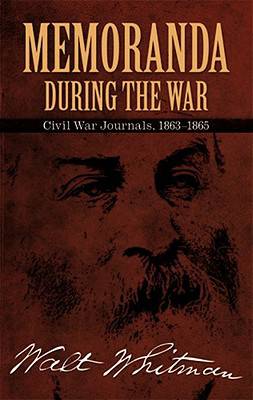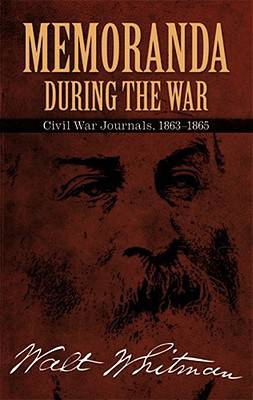
- Afhalen na 1 uur in een winkel met voorraad
- Gratis thuislevering in België vanaf € 30
- Ruim aanbod met 7 miljoen producten
- Afhalen na 1 uur in een winkel met voorraad
- Gratis thuislevering in België vanaf € 30
- Ruim aanbod met 7 miljoen producten
Zoeken
Omschrijving
These reflections by one of America's greatest poets on the nation's most momentous struggle began when Walt Whitman discovered his brother's name in a newspaper list of Union Army casualties. The poet hurried from his Brooklyn home to a Virginia battlefront, where he found his brother, wounded but recovering. Profoundly moved by his experiences in the army hospital, Whitman settled in Washington, D.C., for the rest of the war. There he served as a military hospital volunteer, offering medical and spiritual comfort to sick and dying soldiers. His journal entries express in simple, heartfelt terms his Civil War experiences.
First published in book form in 1875, Whitman's Memoranda recounts soldiers' anecdotes of recent battles and army life as well as their last words and final messages to faraway friends and family. Whitman recorded his impressions of Abraham Lincoln, whom he frequently encountered on the city streets, and his thoughts on the conflict's day-to-day and historical significance. His evocative, poetic reflections offer a unique portrait of Civil War life.
First published in book form in 1875, Whitman's Memoranda recounts soldiers' anecdotes of recent battles and army life as well as their last words and final messages to faraway friends and family. Whitman recorded his impressions of Abraham Lincoln, whom he frequently encountered on the city streets, and his thoughts on the conflict's day-to-day and historical significance. His evocative, poetic reflections offer a unique portrait of Civil War life.
Specificaties
Betrokkenen
- Auteur(s):
- Uitgeverij:
Inhoud
- Aantal bladzijden:
- 112
- Taal:
- Engels
- Reeks:
Eigenschappen
- Productcode (EAN):
- 9780486476414
- Verschijningsdatum:
- 17/06/2010
- Uitvoering:
- Paperback
- Formaat:
- Trade paperback (VS)
- Afmetingen:
- 138 mm x 217 mm
- Gewicht:
- 127 g

Alleen bij Standaard Boekhandel
+ 17 punten op je klantenkaart van Standaard Boekhandel
Beoordelingen
We publiceren alleen reviews die voldoen aan de voorwaarden voor reviews. Bekijk onze voorwaarden voor reviews.











